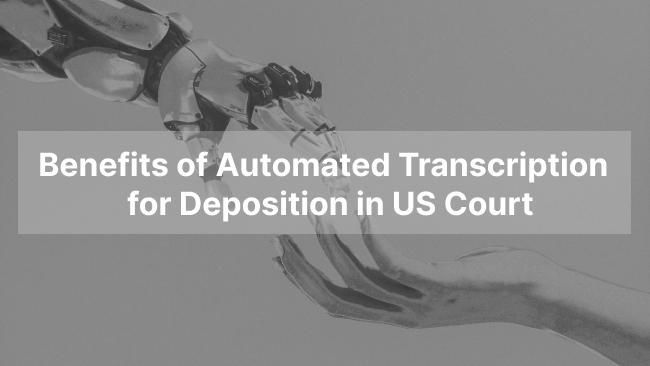Why Audio Redaction is Essential in Law Enforcement
February 2024
·
2 min read

Law enforcement agencies that deal with the freedom of information act request and court rulings grapple with thousands of audio recordings, each potentially holding a critical piece of evidence.
The audio recordings created during litigation- court hearings, police interviews or body-cam footage, contain crucial yet sensitive information. Using these recordings in court or public without reviewing them can lead to reputational harm and legal liabilities.
Unlike text documents, you cannot simply skim through audio recordings to find sensitive information. You must meticulously listen to and transcribe the content before applying redactions.
Why you need to redact audio evidence
To protect the privacy of witnesses and victims:
Redacting PII helps protect their privacy and safety, leading to an increased likelihood of them coming forward and cooperating with law enforcement.
You can remove the names and other Personally Identifiable Information (PII) of witnesses and victims from recordings of interrogations, 911 calls, and further legal proceedings.
To complying with regulations:
Some regulations like HIPAA, GDPR require sensitive information to be redacted from audio recordings before making them accessible to the public.
For example, the Health Insurance Portability and Accountability Act (HIPAA) requires that medical records be kept confidential, including audio recordings of patient interviews.
Audio redaction with Reduct can help legal organizations comply with these regulations and protect the privacy of their participants.
To preserve the integrity of evidence:
Audio redaction ensures that the evidence is admissible in court.You can remove any sensitive information that could compromise the case with audio redaction.
For example, if an audio recording contains the name of a confidential informant, you can use audio redaction to remove that name without affecting the rest of the recording.
Other use cases where you need audio redaction would be:
- To protect the identity of a witness who is testifying in a trial
- To remove confidential information from a 911 call
- To redact the PII of police officers from a body-worn camera video
- To remove the names of victims from a sexual assault recording
- To comply with a Freedom of Information Act (FOIA) request
Navigating the complex redaction process
You can redact audio recordings manually. You can listen to the recordings, identify the sensitive information from the file, and remove them. This however takes up a lot of your time and resource.
Audiovisual transcription and redaction tools like Reduct can handle large volumes of audio content. They help visualize the words as you listen, simplifying the redaction process. You can search for a specific moment in time using the transcripts and easily redact sensitive information.
You can even use other AI softwares that automatically identifies and removes sensitive information or train the tool to recognize specific words or phrases, such as names, addresses, or phone numbers according to your requirements.
Sound decisions for a just future
If you’re looking for a redaction tool to serve your need, you need to consider
-
A tool that leverages eDiscovery technology for efficient and cost-effective audio redactions
-
Prioritizes audio redaction software that transcribes and redacts both the audio and transcript
-
Utilizes metadata filters and keywords to streamline file searches and reviews. (Search)
-
Pays attention to contextual keywords to avoid producing irrelevant or sensitive recordings
From safeguarding the privacy of witnesses and victims to ultimately preserving the integrity of evidence, audio redaction is imperative for law enforcement. With tools like Reduct, you can redact PII from your audio easily.


